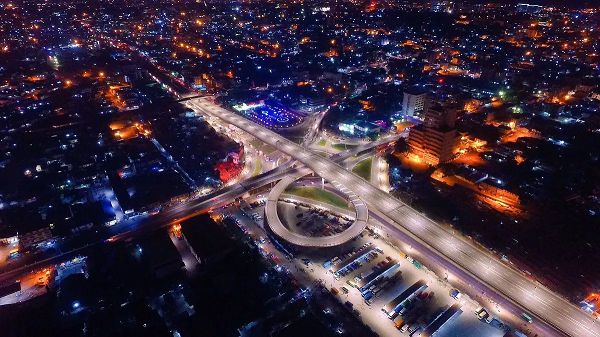
Ruling on noise-making right
Noise pollution is one nuisance that has been ignored or downplayed by society for a very long time, and in view of that, many Ghanaians have come to accept excessive noise as a way of life.
On our streets, hawkers of traditional medicine use microphones to shout above the cacophony of noise produced by vehicles to get the attention of passers-by, while roadside preachers actually mount speakers in the early hours of the day and contribute to noise on our streets.
Drinking bars located in the same areas also try to outdo one another by raising the volume of their music to a crescendo which becomes irritating to the ears.
The worst offenders when it comes to noise in neighbourhoods are churches and mosques.
While the churches tune up the volumes on their amplifiers to full blast, no matter the time of day for worship, some mosques have positioned their horn speakers at the top of the buildings and contribute to noise-making in otherwise quiet communities during the call to prayer known as adhan.
However, many studies conducted have shown that noise at certain levels or decibels, as they are measured, is very injurious to health, apart from the inconvenience and disorientation it causes.
Although there have been many instances of residents reporting the unbearable noise they have to endure from certain quarters to the Environmental Protection Agency (EPA) and the local authorities, most of the reports have not been addressed and the best action that has been taken is normally a reprimand or a letter from the EPA or the local authorities to the offenders.
This is why the Daily Graphic believes that the order by the Accra High Court against the Haatso branches of the International Central Gospel Church (ICGC) and the Cross Road Community Church Ministries (CRCCM) to pay damages of GH¢40,000 to two residents of the area for excessive noise-making and for being a nuisance is in the right direction.
We believe that the judgement will not only serve as a reference point for such cases in future but also empower citizens to use the courts to address issues of noise-making, while people who produce excessive noise without consideration for others will become considerate.
The judgement has also brought to the fore a major concern of society — the siting of churches and commercial entities in residential areas without authorisation — and the Daily Graphic believes that it is time developers looked out for the proper demarcation of areas before putting in place structures.
While we believe that the judgement will serve as a deterrent to erring but nonchalant religious groups, we urge the EPA to collaborate with health authorities to embark on intensive education on the effects of excessive noise, as well as the accepted levels of noise to employ when using electronic equipment.
The Daily Graphic also asks the public not to see the judgement as an attack on the church but an opportunity to practise true Christianity by being considerate of others and complying with the EPA’s permissible noise level.
After all, Christians form the majority of the Ghanaian population and it will be in no one’s interest to launch an attack on the church. We should always remember that where one’s freedom extends to is where another’s rights begin.
Other ways to prevent a spillover of noise into communities is to make church auditoriums sound proof.
We also urge churches to stop the practice of positioning speakers at certain angles or outside the church to reach people outside to listen to what is happening in those churches.
Let us all be thoughtful and also cooperate with the EPA for a noiseless society.
